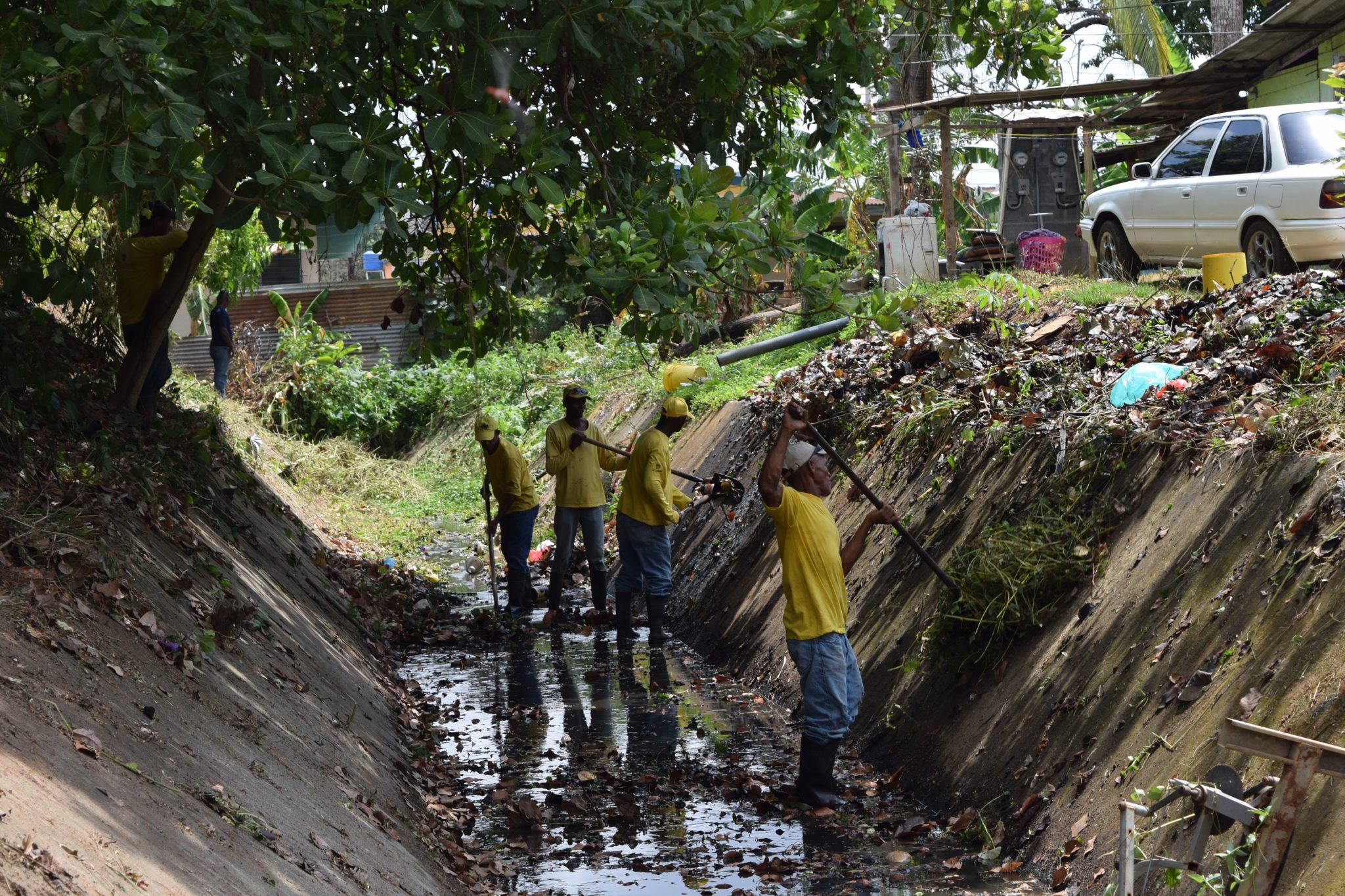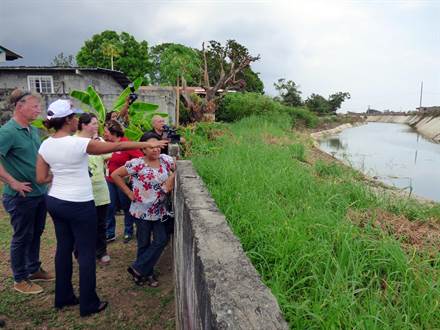Panama Dutch Water Dialogues to reduce urban flood risk

The Juan Díaz sub-district of Panama City has become the most flood-prone area of Panama due to urban developments and landfills in the floodplains, riverbeds and mangroves. Experts of the Dutch water sector, supported by Wetlands International, advised to start ‘Water Dialogues’ to facilitate a participatory learning process, identify root causes to risk, restore trust, stimulate innovative measures including “Building with Nature” solutions and optimize initiatives on water governance. Wetlands International sees the Water Dialogues as an effective way of facilitating change on nature-based flood risk reduction, which can be up-scaled to other cities.

Case Focus:
- Region: Panama City
- Risks: flooding
- People affected: 236,006
- Ecosystems: mangroves, floodplains, riverbeds
- Ecosystem services: water retention, (extreme) rainwater infiltration
Interventions:
- ´Water Dialogues’ to provide a platform to initiate and facilitate a new inclusive process of water management
- Short-term community action to improve drainage and helped to regain trust
- Watershed analysis and flood reduction designs that include wetland reservoirs
- An Action Plan, which clearly defines the tasks ahead, incl. regulatory adjustments
Degraded landscape and risk situation
The Juan Diaz sub-district is a low-lying area separated from the sea by mangroves. Rivers and a creek run through it, but are mostly encroached and channeled. The floodplains, wetlands and mangroves have been used for landfill. When heavy rains fall, the landfills divert the water to lower lying earlier built neighbourhoods. Upstream urban expansion caused sedimentation of the river and streams, and reduced rainwater infiltration, which increases the river flow into the lower part of the basin. Further, the area suffers from a badly maintained drainage system and serious garbage problem.
Multi-stakeholder approach needed
Neighbourhood groups demanded a stop of landfill projects. The developers claim to abide official building codes and blame the government. Government agencies pointed the finger at each other. Environmental NGOs joined the debate to defend the threatened wetlands.
Results thus far of the Water Dialogues
- Dialogues sessions with Dutch water experts and communities, different ministries, Bay of Panama Sanitation Project, Communal Boards, municipal departments, private developers, knowledge institutes and NGO’s
- Evaluation of the actual drainage system, planned developments, and coordination of the water management activities of the different authorities
- A hydrological study (financed by IDB) that showed the impact of the landfills on flooding of neighborhoods
- Community action to clean-up the drainage system
- Action plan for regulatory adjustments, including a Risk Zone Map and additional building requirements to prevent inadequate construction in flood risk zones
- The infrastructural measures will include `Building with Nature´ solutions and urban benefits for residents
- The discourse of blaming others transformed into identifying the real causes and taking joint action.
Our role
Wetlands International Panama functions as the liaison between the Municipality, the Embassy and the Dutch water experts, provides technical input, facilitates planning and implementation of actions and the knowledge and capacity building process, and supports the regulatory framework adjustment.
